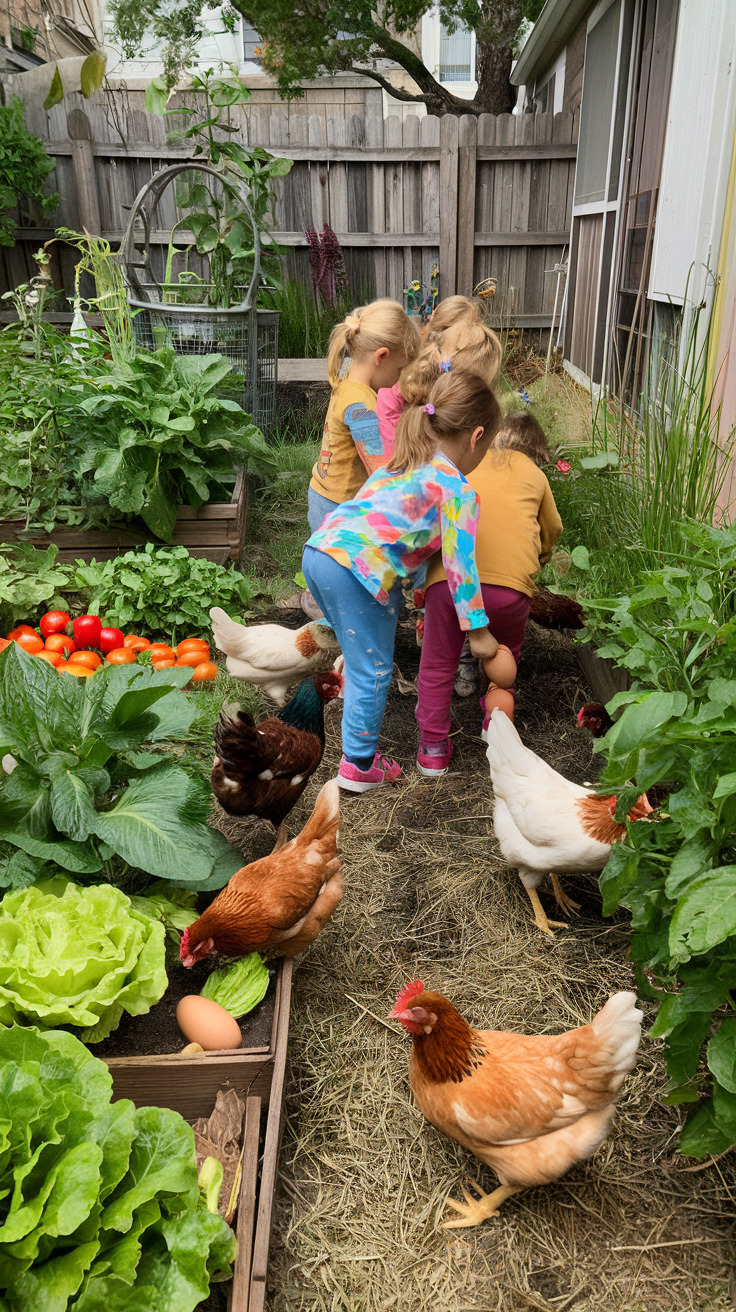Part 5: Predator-Proofing Your Coop
Let’s face it: your chickens are basically a walking buffet for predators. Raccoons, foxes, hawks—even your neighbor’s overly curious dog—are all eyeing your flock. So how do you keep your feathered friends safe?
Thank you for reading this post, don’t forget to subscribe!Fort Knox for Chickens
- Hardware Cloth: Forget chicken wire. It might keep chickens in, but it won’t keep predators out. Use 1/2-inch hardware cloth for all coop openings and bury it at least 12 inches underground to stop digging predators.
- Secure Doors and Latches: Raccoons have opposable thumbs and a master’s degree in lock-picking (probably). Use predator-proof latches that require two-step opening.
- Automatic Coop Door: Install an automatic door that opens and closes on a timer or light sensor. This keeps your chickens safely inside at night without you having to set an alarm.
The Buddy System
- Rooster Watch: If your local regulations allow it, a good rooster can help protect your flock by acting as an alarm system and deterrent. (Bonus: Roosters are great at breaking up hen squabbles.)
- Guard Animals: Some chicken keepers swear by using guard dogs, alpacas, or even geese to deter predators.
Overhead Protection
- Netting: Install bird netting or wire mesh over your run to protect your flock from hawks and other flying predators.
Part 6: Handling and Training Your Chickens
Yes, you can train your chickens! No, they won’t fetch your slippers, but they can learn some useful tricks.
How to Handle Chickens Safely
- Approach Calmly: Sudden movements will send your chickens into a feathered frenzy. Move slowly and speak softly.
- Proper Holding Technique: Support their chest with one hand and their legs with the other. Keep their wings gently tucked against their body.
- Bribes Work Wonders: A few mealworms or a handful of scratch grains can make handling much easier.
Training Tips
- Name Recognition: Believe it or not, chickens can learn their names! Call their name each time you offer a treat.
- Come When Called: Use a specific sound (like a whistle or clicking noise) before feeding them. Soon, they’ll associate the sound with food and come running.
- Coop Training: Train your chickens to return to the coop at dusk by keeping them confined for the first week in their new home. They’ll learn to associate the coop with safety and roosting.

Part 7: Harvesting Your First Eggs
Ah, the moment you’ve been waiting for—your first egg! It’s like finding treasure in the nest box. Here’s what to expect:
When Will They Lay?
Most hens start laying around 18-22 weeks of age. But don’t be surprised if they take their sweet time—some late bloomers might wait until 28 weeks.
Signs of an Egg-Laying Hen
- Squatting Behavior: When you approach, they crouch low with wings slightly spread. This means they’re maturing and ready to lay.
- Redder Combs and Wattles: A bright red comb is a sure sign of a laying hen.
Egg Collection Tips
- Check Daily: Collect eggs at least once a day to prevent cracks, contamination, or theft by opportunistic hens (or worse, predators!).
- Handle with Care: Eggs have a natural protective coating called bloom. Don’t wash them unless absolutely necessary, and always use warm water if you do.
Celebrate!
Your first egg is a big deal. Take a picture. Make a tiny omelet. Do a happy dance in the coop. You’ve earned it!
Final Thoughts
Raising chickens is a delightful (and sometimes messy) adventure, but having the right tools makes it infinitely easier. From top-notch feeders and waterers to predator-proofing and egg harvesting, these essentials will keep your flock clucking happily for years to come.
Stay tuned for the next installment of our Raising Chickens 101 Guide. Until then, happy chicken-keeping, my friend!


